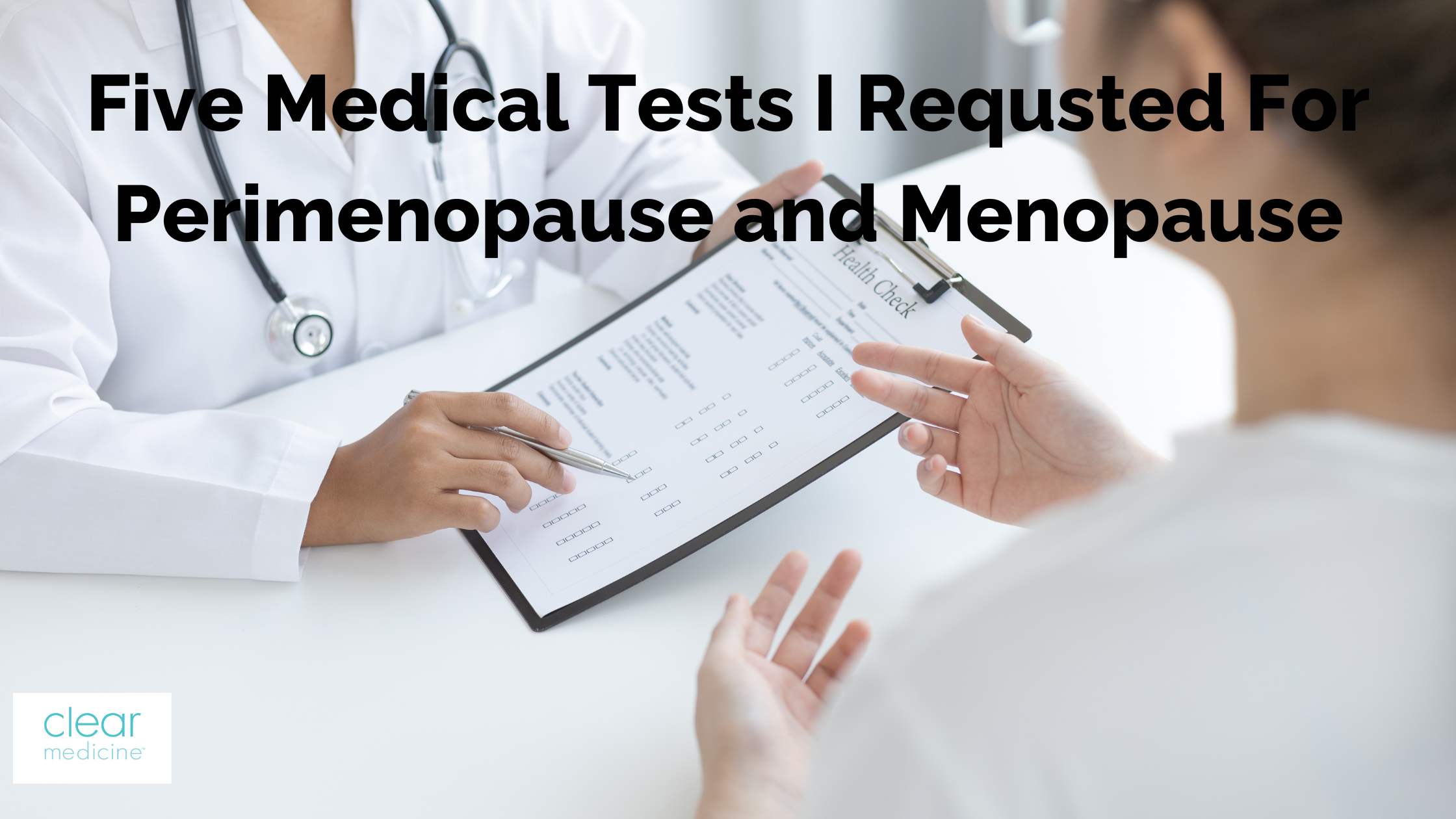5 Medical Tests I Requested At Peri-Menopause & Menopause
Posted by New York Times Bestselling Author of The Hormone Diet Natasha Turner on 9th Oct 2024
Proactive medical testing is your best defense.
1.)Colonoscopy. A colonoscopy can be beneficial for those over 50 years of age (or younger depending on the family history of cancer). They can help to spot early signs of colorectal cancer and remove polyps or growths in the colon.
2..)Bone density scan. I can’t believe the number of my friends (and even my sister) who have not had this screening at the onset of menopause. It is known that a woman can rapidly lose bone mass with the decline in estrogen and that starting hormone replacement as quickly as possible has been shown to help to preserve bone mass. Considering the alarming statistics for osteoporosis, a recommendation of a bone density scan should be common medical practice for women. Fractures from osteoporosis are more common than heart attack, stroke and breast cancer combined. Be your own activist and make sure you get a bone density scan early – and definitely get a baseline at menopause because of the changes that occur at this phase of life. We start losing bone in our 30’s. 22% of women and 33% of men who suffer a hip fracture will die within one year. Learn more about osteoporosis stats.
I am passionate about preserving bone health and motivating others to do so. Remember your strength is your power! It’s why I strength train five to six days per week and I take 15 grams of marine collagen, three capsules of 180 mg magnesium glycinate, one capsule of B12 and folate for homocysteine metabolism, three mg of melatonin, BHRT (Estragel and Prometrium), vitamin D3 and vitamin K as well as pure form omega. You can check for these supplements here and I obtain my calcium through my diet in Greek yogurt (1.5 cup per day), almonds, cottage cheese, chia seeds, sesame seeds, white beans (1/2 cup), whey protein, leafy greens like spinach and kale, and edemame.
3.)PAP test. You’ll need a recent PAP test to start the BHRT, should you opt to do so, and it’s recommended women continue to have PAP tests to the age of 70. Vaginal suppositories of estriol or vaginal moisturizers can help with the discomfort of vaginal dryness that can cause discomfort during this test. I follow @drmaryclaire on Instagram, and in addition to vaginal estrogen, I have also heard her suggest to try coconut oil. Dr. Mary Claire is also a huge proponent of all the exact same things for bone health - with the addition of a weighted vest for walking. I highly recommend you give her a follow.
4.)I chose to have my first and only mammogram before starting BHRT. It showed I had dense breast tissue type C which means mammograms are not the best monitoring method moving forward for breast cancer screening. In fact, it is known that the gold standard for screening for breast cancer risk with increased breast density is a breast MRI. So, the pain of the mammogram provided this valuable information, which means I will request this test in two years’ time. I will also ask for a breast ultrasound after my first year of being on BHRT. Note that current statistics suggest that 40% of women have dense breasts, which can be a greater risk factor for breast cancer than a family history. Are you in this category? If so, it could be in your best interest to be asking for an MRI to manage your breast health on an ongoing basis. It’s up to you to advocate for yourself.
5.)Cardiac stress test. The exercise stress test is a useful screening tool for the detection of significant coronary artery disease. Your doctor will determine if this is a suitable test for you by taking your case history and assessing your ability to walk and exercise. The test report contains comments about the maximal heart rate and level of exercise achieved, and symptoms, arrhythmias, electrocardiographic changes and vital signs during exercise. The risk for heart disease and stroke increases in menopause and post menopause and the proper screening may help in identifying if proactive measures are needed.
Questions or comments you can DM me at @natashaturnerauthor on instagram.

